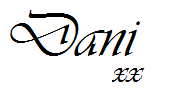OPINION: What Is "Professional"?
A while ago I posted a blog that I had originally written on my performer page, then this morning I was reading Paula's blog which mentioned that one of the discussions in the current Module One campus session had revolved around what it means to be a 'professional', which reminded me of another post I originally wrote in 2012 (I realised I was quite ranty and opinionated back then! I've mellowed in the last couple of years I think!)
So once again, I thought I'd share my previous, cabaret-related thoughts with you! Please note, when I re-read this, I had a lot of new thoughts so the sections in italics are my additions or current thinking processes rather than part of the original.
What Is 'Professional'? (Originally Posted July 2012)
So once again, I thought I'd share my previous, cabaret-related thoughts with you! Please note, when I re-read this, I had a lot of new thoughts so the sections in italics are my additions or current thinking processes rather than part of the original.
Image Source: bodyshopalliance.com
What Is 'Professional'? (Originally Posted July 2012)
Almost
every Burlesque performer has, somewhere in their blurb the line 'I
am a professional burlesque dancer' or similar.
This
irks me on many levels. Firstly, and most quickly, I don't believe
you should call yourself a dancer if you can't dance. Walking around
in time to music shedding a pretty costume is all well and good: it
is performance, it can be artistic, it may be entertaining, but it is
not dancing. Or is it? Who is to say what makes a 'dance performance'?
Secondly:
what is 'professional' in this context? The OED defines the term
variously as “Engaged in a profession as a means of livelihood”,
or “Characteristic of or befitting a profession” And this is the
issue. Generally, if something is your main form of income, that is
your profession.
However,
what if a performer is of a very high standard, working in good
quality shows, yet they have a day job, and burlesque is merely a
hobby they enjoy, which provides a little extra pocket money on the
side? Do they have the right to call themselves a professional
burlesque performer as they conduct and present themselves in a
professional manner? Conversely, and less occasionally encountered,
take the example of a sub-standard performer who works a couple of
nights in lower quality shows yet has no other source of income: do they have the right to call
themselves a professional as they do not have another job and
therefore relies on the money they may earn from performing?
Attitude
also plays a huge role in determining professionalism (take the
second definition from the OED): a performer can be paid well for a
show, yet behave shockingly backstage, or turn in a sub-par
performance. This would be talked about as “behaving
unprofessionally” however they have been paid well. On the other
hand, a lower paid, or unpaid, performer may arrive early, behave
impeccably and present a stand-out act: this would have been
“professional conduct” so who can judge who was the professional
or the amateur?
On
a slight tangent: Amateur does NOT mean 'bad'!. Amateur Dramatics
companies do not advertise themselves as professional performances
despite the fact that many are of an extremely high standard. However
this is something to discuss at another time.
It
is a tricky subject and one that is much discussed on various forums.
I, personally, trained in performance: my qualification was called
'Professional Musical Theatre' and I gained a Distinction. Does this
qualification alone entitle me to call myself a professional
performer when I spent my first year out of college working in a bar
and schlepping to and from auditions several times a week? There are no qualifications or standardizations in Burlesque. When I first started I was advised not to use the word 'professional' in my blurb until I had either been working for five years, reached a certain level of exposure or could command a certain fee for a show. This is all very confusing to newcomers, and I honestly think that the first time they are paid for a performance they are able, through definition (being paid for their work) able to call themselves a professional. If there was a certain level of attainment, in the way that a medical qualification denotes a professional doctor, then that would be clearer: or a ballerina joining the English National Ballet company could then call themselves a professional ballet dancer. It's so tricky in such a fluid industry!
The
blurring of definition is possibly what has led to the confusion.
Performers state that they are 'professional' as they expect, usually
quite rightly, to be paid for their performances, but it carries with
it expectations of a certain standard: both in performance level and
personal conduct. As mentioned a moment ago, however, there is no standardization. Attempts were made several years ago to correct this and introduce a teaching or grading syllabus, but it proved very difficult both to create a system and convince the established teachers or grading companies to take it seriously. And this is part of the problem: untrained performers are going on to teach performance to other non-performers, creating a community where the top performers rarely refer to themselves as professional (maybe because it doesn't need to be said) and those who have completed a six-week 'how to take your stockings off' course are throwing the word around willy-nilly!
It's
not for me to say who can or can't call themselves a professional
burlesque dancer – people can call themselves whatever they wish,
but I do believe there should be more awareness of what the term
actually means and the responsibility you create for yourself when
you use it.




Comments
Post a Comment